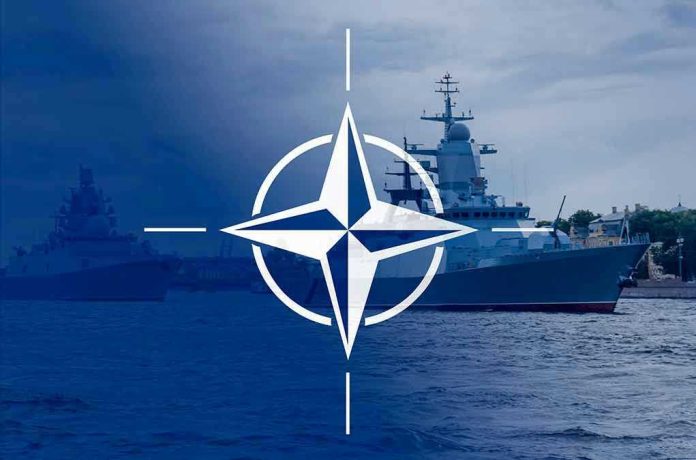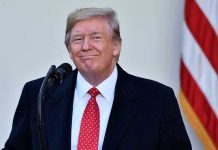
Donald Trump’s second term foreign policy, marked by unpredictability and impulsiveness, is reshaping global alliances and creating a whirlwind of both breakthroughs and crises.
Story Snapshot
- Trump’s erratic foreign policy mixes impulsive decisions with diplomatic successes.
- The global order faces increased instability and uncertainty under Trump’s leadership.
- Traditional alliances and multilateral frameworks are being undermined.
- Trump’s approach is both a source of diplomatic breakthroughs and new crises.
Heightened Unpredictability on the World Stage
Donald Trump’s foreign policy during his second term has reached unprecedented levels of unpredictability. This approach, which blends impulsive decisions with occasional diplomatic successes, has both alarmed and intrigued global leaders. Trump’s unorthodox methods led to a fragile cease-fire between Israel and Hamas, and pressured NATO allies to increase defense spending. Yet, these successes are counterbalanced by trade wars, policy reversals, and strained alliances.
Trump, Long Erratic on the World Stage, Reaches a New Level – The New York Times https://t.co/6gNzetYidq
— Chucho Pertinaz (@ChuchoPertinaz) October 27, 2025
The repercussions of this unpredictability have been felt globally, resulting in a climate of uncertainty. Allies, unsure of U.S. intentions, are hedging against future unpredictability. Meanwhile, adversaries capitalize on the chaos to advance their interests. Trump’s personalistic decision-making and disregard for traditional alliances exacerbate this instability, raising questions about the long-term impacts on global security and economic stability.
Disregard for Multilateral Frameworks
Trump’s foreign policy fundamentally challenges multilateral frameworks by favoring direct leader-to-leader diplomacy. This bypassing of traditional diplomatic channels has strained transatlantic relationships, with Europe contemplating greater autonomy. Trump’s pressure on NATO allies to boost defense spending exemplifies his transactional approach, which, while yielding some results, erodes trust and cohesion within alliances.
Notably, Trump’s inclination for abrupt policy changes, such as the suspension and resumption of military aid to Ukraine, further destabilizes the global order. This unpredictability undermines the reliability of U.S. security guarantees, prompting allies to reconsider their strategies. The erosion of multilateral institutions like NATO and the EU could have lasting consequences for regional and global stability.
Increasing Instability in Conflict Zones
The impact of Trump’s foreign policy extends to conflict zones, where his actions have heightened instability. Military brinkmanship in Venezuela and shifting U.S. conditions for aid to Ukraine illustrate the volatile nature of his decision-making. These actions create uncertainty and elevate the risk of military escalation in already volatile regions.
In the Middle East, the fragile cease-fire brokered between Israel and Hamas remains at risk of collapse due to Trump’s unpredictable approach. The humanitarian and social impacts in these regions are significant, with increased violence and crises affecting local populations. As the U.S. continues to shift policies rapidly, allies and adversaries alike remain wary of the potential for sudden changes that could disrupt the delicate balance in these conflict zones.
The Long-Term Implications for Global Security
The long-term implications of Trump’s second-term foreign policy are profound. The erosion of trust in U.S. leadership could lead to a weakening of multilateral institutions and the potential for new arms races. European allies, concerned about U.S. reliability, are considering strategic autonomy and rearmament, which could alter the dynamics of global security.
Furthermore, Trump’s approach has disrupted global trade relationships, creating economic instability. Trade wars with Canada and China, sparked by minor diplomatic spats and personal grievances, illustrate the fragility of current trade policies. As the global order becomes increasingly unstable, the long-term consequences for economic stability and humanitarian outcomes remain uncertain.




